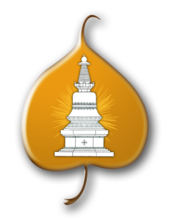In Tibetan Buddhism, traditional statues are made of bronze and hollow inside. There's a process of rolling mantras and filling the statues in preparation for a blessing ceremony when the Buddhas are invited to become one with the statue, making it ready for use on an altar. Not only is this a fun hands-on activity, it's an excellent way to get to know other people in the center community! So even if you don't have a statue, you can come and participate by rolling mantras for others.
Students who have a statue and want to have it blessed need to:
1) Register your statue right away by emailing program@kadampa-center.org. This way we can judge how many mantras need to be rolled before we can hold the ceremony. Please include:
- Type(s) of Buddhas (Shakyamuni, Tara, etc.)
- Height of each statue in inches
- Your name, email and phone
2) Participate in this process by coming to as many rolling sessions as possible - they will happen on a variety of times and days to help make it available for anyone's schedule. This creates a very strong personal connection to your statues, both karmically and as a inspiration for your practice. Rolling mantras requires instruction and practice, so can't be done individually at home until you've attended at least one session at the center.
For detailed information about how to buy a Buddha statue, we have advice from Geshe Gelek online.
Please also think about a donation for the statue blessing - there are costs involved buying and preparing the materials and offerings are made to the sangha (it's typically a two-day intensive process to fill and bless the statues). A recommended donation is $50-100 per statue, but any amount is appreciated and welcomed. Donations can be made online or put in a donation box at the center and labeled for the statue filling and blessing.

